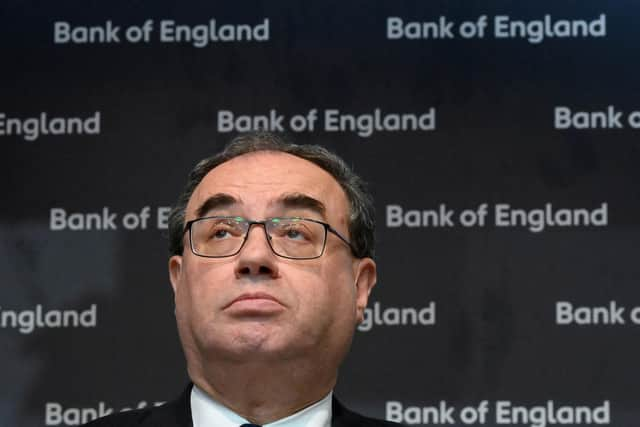Policymakers can choose how to react to this economic pain
Further increases in interest rates - added to yesterday by the Bank of England's eighth consecutive rise in the base rate, to 3% - augmented by rampant inflation in food, energy and other essentials, all point to the next 12 months being very difficult for many.
Could the pain last even longer? Many will take the Bank of England's comments about the threat of a two-year recession, and doubling of unemployment, as a prediction. But they may, instead, be seen as a warning: a warning directed, in particular, to financial markets where many bets have been made on rates.
Advertisement
Hide AdAdvertisement
Hide Ad"We think [the] Bank rate will have to go up by less than is currently priced in by financial markets,” said Bank of England Governor Andrew Bailey, who added that fixed rate mortgages should not need to rise as much as they have done.
Even if the Governor warned the road ahead will be tough one, it is possible to see the Bank signalling that, although further rate rises are inevitable, the extent of those rises - and the depths to which the economy plunges - are far from a foregone conclusion.
“But the economy will recover. And inflation will fall. We cannot pretend to know what will happen to gas prices. That depends on the war in Ukraine. But from where we stand now, we think inflation will begin to fall back from the middle of next year, probably quite sharply," he said.
The statement could also be taken as an indication the BoE is not seeking only to placate financial markets which have had such jitters since the disastrous mini-budget. The Bank is also aware of the impact of those decisions on homeowners and consumers.
That context matters, because although policymakers have limited influence on the events that are causing such economic pain, they still do have a power to choose how to react. And so attention must, therefore, turn to the Government and its forthcoming budget later this month.


Workers, householders and businesses will all be concerned by the prospect of the return of austerity; a swingeing package of tax rises and expenditure cuts to be applied just as Britain falls into recession.
Policymakers must take care not to make a bad situation worse, not only for the sake of their political futures, but for the futures of millions of households across the country.